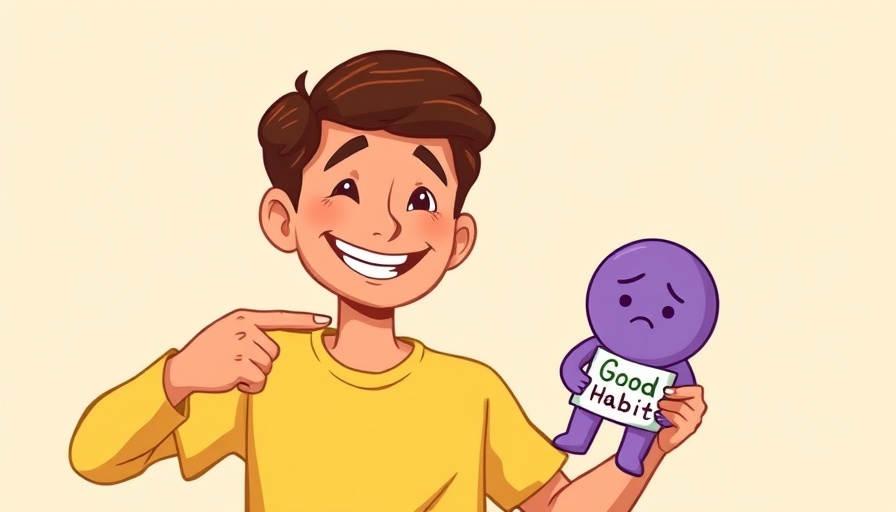
Understanding Bad Habits: The First Step to Change
Everyone has habits they wish they could change, whether it's mindlessly scrolling through social media, nibbling on snacks when stressed, or procrastinating on important tasks. However, when faced with these habits, many find themselves frustrated by their inability to alter their behavior. In my experience, recognizing that bad habits are a common part of human nature is the foundation to accepting and ultimately changing them.
The Role of Acceptance in Transforming Bad Habits
Acceptance is more than just acknowledging a habit; it’s an approach to understanding the triggers and emotions that lead to certain behaviors. Instead of viewing my phone as a mere distraction, I realized it was a coping mechanism during moments of boredom or stress. By observing and accepting my habits without self-judgment, I began to recognize the deeper emotional needs I was attempting to fulfill.
Mindfulness as a Tool for Change
One of the most effective techniques I adopted was mindfulness. By becoming fully present and aware in the moment, I was able to identify when I reached for my phone. Mindfulness allows for a more profound understanding of emotional triggers, granting space to respond rather than react impulsively. Keeping a journal became an invaluable tool in this process, allowing me to reflect on my habits, their triggers, and the emotional responses I felt.
Shifting the Narrative Around Bad Habits
The language we use with ourselves significantly affects our ability to change. I started transforming my inner dialogue from strict commands like “Don’t use your phone” to gentler suggestions such as “Consider what else you could do now.” This conscious pivot in my narrative helped create a less hostile relationship with my habits, replacing frustration with understanding.
Practical Strategies for Conquering Bad Habits
- 1. Observe Without Judgment: The first step is to create space for self-observation. Take note of when you engage in a habit, what emotions prompt it, and how it affects your daily life. Journaling is a powerful method to capture these observations and understand your habit patterns.
- 2. Visualize a Positive Outcome: Instead of concentrating on what you’re trying to avoid, visualize the benefits of changing the habit. Imagine how your relationships, productivity, and emotional well-being would improve without the burden of that habit.
- 3. Build Support Networks: Share your goals with friends or join support groups. Having a community encourages accountability and strengthens commitment to positive behavior changes. It’s often easier to make changes when you aren’t battling them alone, and support can provide motivation during challenging moments.
- 4. Incorporate Healthy Alternatives: Find alternative activities or healthier behaviors that fulfill the same needs. For instance, if boredom drives you to scroll through social media, consider picking up a new hobby or going for a walk instead. Creating a list of activities you enjoy can guide you when the urge arises.
Embracing Change with Compassion
It's important to approach this journey with compassion. Change is rarely linear; setbacks are part of the process. I learned to celebrate small victories and to treat myself kindly during difficult times. This gentle approach fosters resilience and allows me to engage with my habits thoughtfully rather than resentfully.
Conclusion: Your Journey Toward Better Habits Begins Today!
Recognizing and accepting our imperfect habits is the key to transforming them. Armed with mindfulness, a compassionate narrative, and effective strategies, we can navigate through the complexity of behavior change. Regardless of where you are in your journey, remember that acceptance creates the foundation for real change. Begin today by observing your habits with kindness, understanding the emotions behind them, and taking one small step towards a healthier and happier you!
 Add Row
Add Row  Add
Add 






Write A Comment